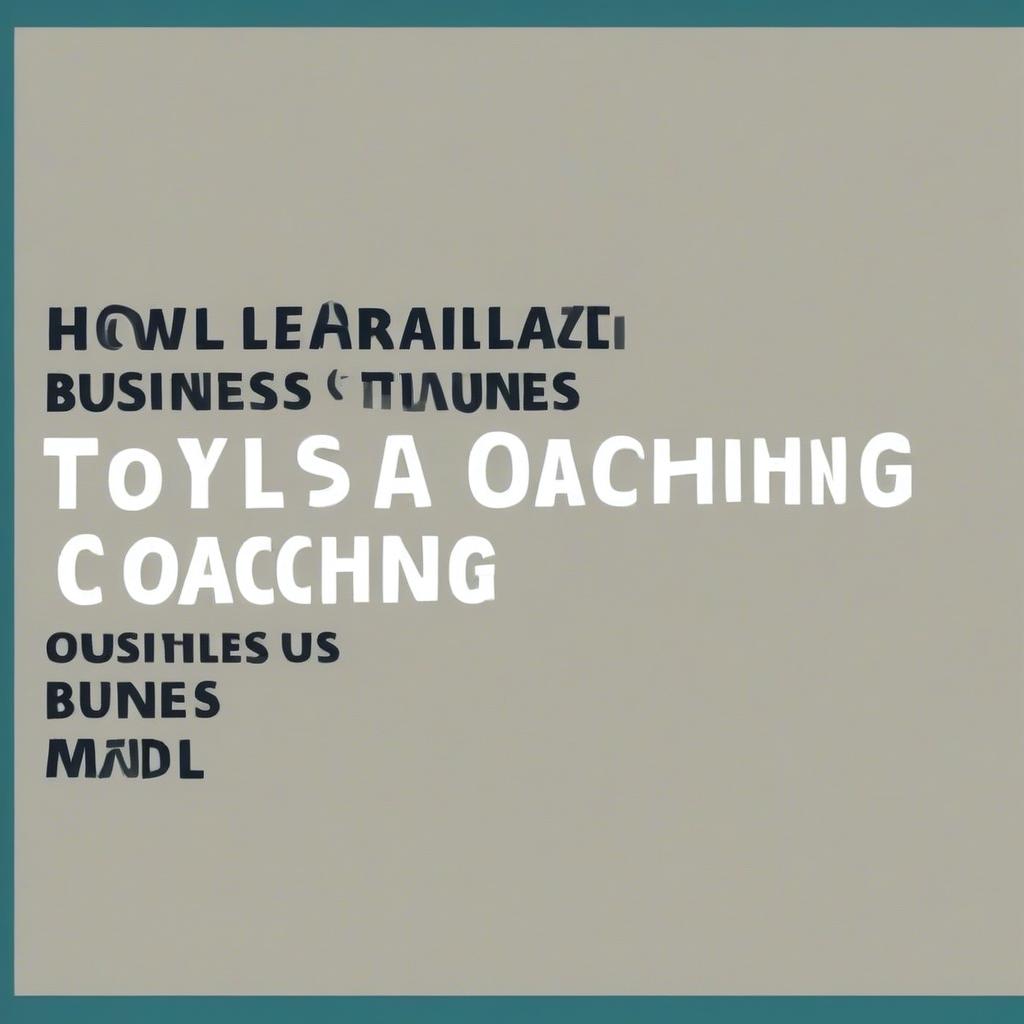
Have you ever felt a nagging pull towards something more? A feeling that your current path, while perhaps comfortable, isn’t truly fulfilling? If so, you’re not alone. Many professionals reach a point where they crave a career change, a chance to use their skills and experience in a new and meaningful way. For some, that call leads to the powerful world of coaching. The good news is that transitioning to a coaching career change is absolutely achievable, and this guide will show you how to do it successfully.
Why Choose Coaching for a Second Career?
The rise of coaching as a profession isn’t a fluke. It’s a response to a deep-seated need in today’s world. People are increasingly seeking guidance, support, and empowerment to navigate challenges and achieve their goals. This has led to a surging demand for skilled and compassionate coaches. But why specifically consider coaching for your second career? Here are some compelling reasons:
Impact and Fulfillment
Unlike many traditional roles, coaching offers a direct and tangible way to positively impact the lives of others. Seeing your clients achieve their goals, overcome obstacles, and unlock their potential is an incredibly rewarding experience. This sense of purpose and fulfillment is often a major draw for individuals seeking a career transition.
Leveraging Your Existing Experience
You might be surprised to learn that your past career experiences, regardless of your industry, are incredibly valuable in coaching. The skills you’ve honed in project management, communication, problem-solving, and leadership are all highly transferable to a coaching career. You’re not starting from scratch; you’re building upon a solid foundation. This makes the career transition smoother and faster.
Flexibility and Autonomy
Many coaches enjoy a high degree of flexibility and autonomy in their work. You can often set your own hours, choose your clients, and even work remotely. This freedom can be incredibly appealing for those seeking a better work-life balance in their second career. It’s a path that allows you to craft a career around your life, rather than the other way around.
Continuous Learning and Growth
The world of coaching is constantly evolving, requiring you to stay up-to-date on the latest techniques and best practices. This continuous learning and growth makes for a dynamic and stimulating professional journey, making your second career feel fresh and engaging.
Meeting a Growing Need
The demand for skilled coaches is higher than ever. Businesses, individuals, and organizations are all recognizing the power of coaching to drive success and personal development. This growing demand creates ample opportunities for aspiring coaches to build thriving and sustainable practices as part of their career change.
Types of Coaching: Finding Your Niche
Before diving into the practical steps of transitioning, it’s important to explore the diverse landscape of coaching. This exploration will help you identify your niche and the area where you can best serve your clients. Here are some popular types of coaching:
Life Coaching
Life coaching focuses on helping individuals achieve personal growth and fulfillment. Life coaches guide clients in clarifying their values, setting meaningful goals, overcoming obstacles, and creating a more balanced and purposeful life. This is often the starting point for many considering a coaching career change.
Executive Coaching
Executive coaching focuses on supporting leaders and executives in enhancing their leadership skills, communication abilities, and overall performance. This type of coaching often involves working with high-level professionals in organizations.
Business Coaching
Business coaching is centered around helping entrepreneurs and business owners grow their companies. Business coaches provide guidance on strategy, marketing, sales, and team management. This is a natural fit for those with a business background considering a second career.
Career Coaching
Career coaches assist individuals in making informed career choices, developing effective job search strategies, and advancing their professional development. This specialization is perfect for those who have a passion for guiding others along their professional journey.
Health and Wellness Coaching
Health and wellness coaches work with clients to improve their physical and mental health through goal setting, behavior modification, and lifestyle changes. This niche is ideal for individuals who have a passion for health and well-being.
Relationship Coaching
Relationship coaches help couples and individuals improve their communication, strengthen their relationships, and navigate challenges in their personal lives. This area is often for those with a background in psychology or interpersonal dynamics.
Speciality Niche Coaching
This can range from creativity coaching to productivity coaching to even sports coaching. There are numerous niches to consider, offering flexibility for your specific passions and expertise, helping you carve out a unique place in the coaching career change world.
Pro Tip: Don’t feel pressured to pick one niche immediately. You can start by exploring a broader area and then gradually specialize as you gain experience and clarity. Understanding your ideal client and their needs will help you solidify your niche in your second career as a coach.
Steps to Transitioning Successfully into Coaching
Making a successful career transition into coaching requires careful planning and a strategic approach. It’s not enough to simply declare yourself a coach; you need to build a solid foundation for long-term success. Here’s a step-by-step guide:
Step 1: Self-Assessment and Reflection
Before you invest time and money, take a step back and reflect on your motivations and suitability for coaching. Ask yourself these questions:
- What are my core values?
- What am I passionate about?
- What skills and experiences do I bring to the table?
- Do I enjoy helping and supporting others?
- Am I a good listener and communicator?
- Am I comfortable with uncertainty and entrepreneurship?
- Why do I want a coaching career change?
Your answers to these questions will help you determine if coaching is the right path for you and clarify your niche.
Step 2: Training and Certification (Optional, but Highly Recommended)
While formal certification isn’t always mandatory, it can significantly enhance your credibility and equip you with the necessary skills and knowledge. Consider these options:
- Accredited Coaching Programs: Look for programs accredited by reputable organizations like the International Coaching Federation (ICF). These programs offer structured training, mentorship, and practical experience.
- Specialized Training: If you have a niche in mind (e.g., business coaching), explore specialized training programs to further enhance your expertise.
- Workshops and Online Courses: These can be great supplemental learning opportunities, but they are not a substitute for comprehensive coaching programs.
Pro Tip: Research different programs and compare their curriculum, faculty, and costs before making a decision. Investing in quality training will pay dividends in the long run, particularly during this career transition phase.
Step 3: Defining Your Coaching Model and Niche
Once you have your training and you are clear on your reasons for this career change, it’s time to solidify your coaching model and your niche. Consider these questions:
- What types of clients do you want to work with?
- What specific challenges do you want to address?
- What makes your approach unique?
- What will be the structure of your sessions (length, frequency, mode)?
- What will you charge for your services?
Having a clear niche and defined coaching model will make it easier for you to attract the right clients and build a sustainable practice.
Step 4: Building Your Brand and Online Presence
In today’s digital age, an online presence is crucial for attracting new clients and building credibility. Consider these steps:
- Create a professional website: Your website should clearly communicate your coaching services, your expertise, and your brand message.
- Develop a strong social media presence: Use platforms like LinkedIn, Facebook, Instagram, and Twitter to engage with your target audience and share valuable content.
- Start a blog: Share your insights and expertise through blog posts that address common pain points of your ideal clients.
- Create lead magnets: Offer free resources, like e-books, checklists, or webinars, in exchange for contact information.
Building a strong online presence will help you reach a wider audience, establish yourself as an expert, and attract potential clients as you begin this new phase of your coaching career change.
Step 5: Networking and Finding Your First Clients
Networking is essential for building relationships and finding your first clients. Consider these strategies:
- Attend industry events and conferences: Meet other coaches and potential clients in person.
- Join online coaching communities: Engage in discussions and share your expertise.
- Offer free introductory coaching sessions: Give potential clients a taste of your coaching style and build rapport.
- Reach out to your existing network: Let your friends, family, and former colleagues know about your new career path.
Your first clients are key to building your confidence and momentum. Embrace the opportunity to learn and refine your approach.
Step 6: Continuous Learning and Development
The coaching career landscape is continuously evolving, requiring you to stay current. Here are some ways to keep learning:
- Join masterminds: Collaborate with other coaches and gain new perspectives.
- Attend workshops and webinars: Keep up-to-date with the latest techniques and best practices.
- Read books and articles: Expand your knowledge and expertise.
- Seek feedback from your clients: Identify areas where you can improve your coaching skills.
- Consider further training and certification: As you grow, consider specializing in advanced training.
Step 7: Managing Your Coaching Practice
As you grow your practice, you need to develop effective systems for managing your business, here are some tips:
- Use scheduling tools: Automate appointment booking and reminders.
- Utilize CRM software: Track your clients, communication, and progress.
- Manage your finances: Keep accurate records of your income and expenses.
- Set clear boundaries: Avoid burnout by setting realistic expectations and establishing clear work-life balance boundaries.
Running a successful coaching career requires discipline, organization, and a commitment to providing exceptional service to your clients.
Tools and Resources to Support Your Coaching Transition
The transition into coaching as a second career can feel overwhelming, but many resources and tools are available to help you succeed. Here are some categories and specific examples:
Coaching Training Programs and Certification
- International Coaching Federation (ICF): The leading global organization for coaching professionals.
- Coaches Training Institute (CTI): Known for its robust coaching curriculum.
- Institute for Professional Excellence in Coaching (iPEC): Focuses on energy leadership coaching.
Business Management and Productivity Tools
- Calendly: Online scheduling tool.
- Acuity Scheduling: Another popular scheduling option.
- HubSpot CRM: Free CRM software with basic marketing tools.
- Asana/Trello: Project management tools for keeping track of clients, tasks, and goals.
- Google Workspace: Business communication and productivity apps.
Website and Social Media
- WordPress: Highly customizable content management system for websites.
- Squarespace: User-friendly website builder with templates designed for service providers.
- Canva: Graphic design tool for creating social media visuals and marketing materials.
- Hootsuite/Buffer: Social media management tools for scheduling posts.
Client Management Tools
- Practice Better: Client portal for health and wellness coaches.
- CoachAccountable: A popular platform for coaches to manage client interactions and track progress.
- Paperbell: All-in-one platform for coaches to schedule, invoice, and manage client sessions.
Online Communities and Networking Platforms
- LinkedIn: Connect with other coaches and potential clients.
- Facebook Groups: Search for groups focused on your niche and engage in conversations.
- Meetup: Find local in-person networking events.
- Reddit: Engage in relevant subreddits, and offer advice.
Learn Business: Your Partner in Building a Successful Coaching Practice
Starting a coaching career change comes with many questions, especially when navigating the business side of coaching. At Learn Business, we understand these challenges and offer invaluable support to aspiring coaches like you. Our services include:
Guidance Tailored to Your Needs
We offer customized templates designed specifically for the coaching industry. These templates address critical areas such as:
- Client contracts: Ensure that you are protected and your agreements are clear and legally sound.
- Coaching session notes: Streamline the process of capturing key information.
- Invoicing: Simplify and automate your billing process.
- Onboarding packages: Create a professional and welcoming experience for new clients.
- Marketing materials: Design eye-catching marketing assets to attract your ideal clients.
- Business plans: Develop a comprehensive roadmap for your coaching practice.
Our templates are easy to customize and are designed to save you time and effort, so you can focus on what you do best: coaching.
Helping Businesses Like Yours
Learn Business’s focus is on empowering businesses to thrive, and we recognize the unique challenges faced by coaches during their second career transition. Our comprehensive resources and tailored support make your journey easier. We are invested in your success and are here to guide you every step of the way.
Why Choose Learn Business?
- Expertise: Our team has extensive experience in supporting small businesses and entrepreneurs.
- Customization: We tailor our guidance and templates to meet your specific coaching niche.
- Efficiency: Save time and resources with ready-made, professional resources.
- Support: Gain access to ongoing support and advice from our experienced team.
- Simplicity: Our easy-to-use tools make setting up and managing your business straightforward.
Learn More about How We Can Help
Visit our website to explore our range of templates, tools, and resources designed to support your coaching career transition. Let Learn Business be your trusted partner as you build a thriving and fulfilling second career as a coach.
The Power of a Second Career in Coaching
The decision to pursue coaching as a second career is a bold one, but it can be incredibly rewarding. It offers a unique opportunity to leverage your past experiences, make a meaningful impact on others, and build a career that aligns with your values and passions. By following the steps outlined in this guide, utilizing the resources available, and working with partners like Learn Business, you can confidently navigate your career transition and create a flourishing coaching career. This isn’t just about changing jobs; it’s about stepping into a purpose-driven life. So, are you ready to embrace the journey? The world is waiting for the positive influence you can have as a coach. Your second career is waiting!



Leave a Reply